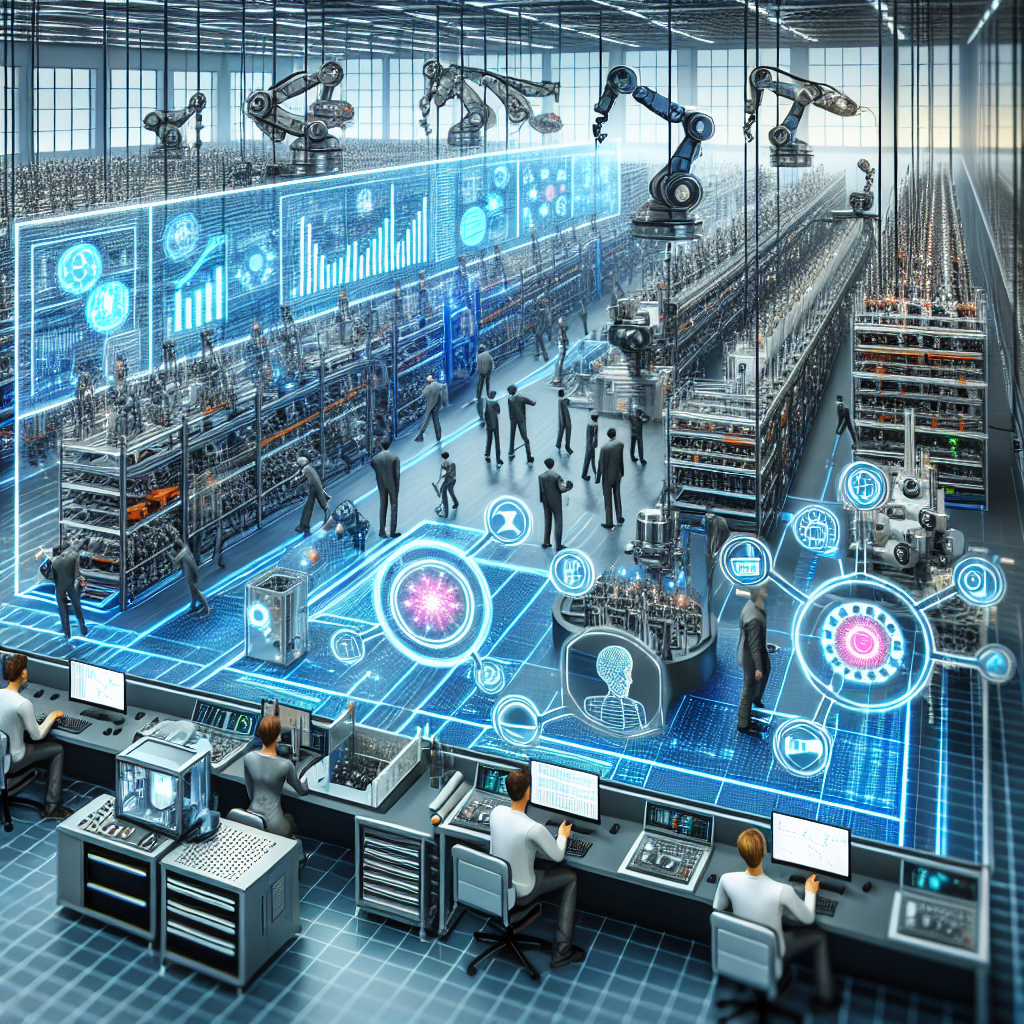Artificial intelligence (AI) has rapidly transformed almost every industry in recent years, and manufacturing is no exception. The use of AI in design and engineering processes has revolutionized the way products are created, making them more efficient, cost-effective, and high-quality. From the initial concept phase to the final manufacturing stage, AI is playing a crucial role in every step of the process.
One of the key ways AI is revolutionizing the design and engineering process in manufacturing is through generative design. Generative design uses algorithms to create multiple design options based on a set of parameters and constraints. This allows engineers to explore a wide range of design possibilities quickly and efficiently, ultimately leading to more innovative and optimized solutions. By leveraging AI, manufacturers can reduce the time it takes to design a product while also improving its performance and reducing material waste.
Another way AI is transforming the manufacturing process is through predictive maintenance. By analyzing data from sensors and other sources, AI can predict when a machine is likely to fail and schedule maintenance before a breakdown occurs. This not only reduces downtime and repair costs but also extends the lifespan of equipment, ultimately improving overall efficiency and productivity.
AI is also being used to optimize production processes in manufacturing. By analyzing data from sensors and other sources in real-time, AI can identify inefficiencies and bottlenecks in the production line. This allows manufacturers to make adjustments on the fly, improving overall production efficiency and reducing waste.
In addition to improving design and production processes, AI is also revolutionizing quality control in manufacturing. By analyzing images and other data, AI can quickly identify defects in products that may be missed by human inspectors. This not only improves product quality but also reduces the likelihood of faulty products reaching consumers.
Overall, the use of AI in design and engineering processes in manufacturing is transforming the industry in numerous ways, making it more efficient, cost-effective, and high-quality. As AI continues to advance, we can expect even greater innovations in the manufacturing sector in the years to come.
FAQs:
1. How is AI impacting the design process in manufacturing?
AI is impacting the design process in manufacturing by enabling generative design, which uses algorithms to create multiple design options quickly and efficiently. This allows engineers to explore a wide range of design possibilities and ultimately leads to more innovative and optimized solutions.
2. How is AI improving production processes in manufacturing?
AI is improving production processes in manufacturing by analyzing data from sensors and other sources in real-time to identify inefficiencies and bottlenecks in the production line. This allows manufacturers to make adjustments on the fly, improving overall production efficiency and reducing waste.
3. How is AI revolutionizing quality control in manufacturing?
AI is revolutionizing quality control in manufacturing by analyzing images and other data to quickly identify defects in products that may be missed by human inspectors. This improves product quality and reduces the likelihood of faulty products reaching consumers.
4. What are some of the challenges of implementing AI in manufacturing?
Some of the challenges of implementing AI in manufacturing include the initial cost of investment, the need for specialized skills and training, and concerns about data security and privacy. However, the benefits of using AI in manufacturing far outweigh these challenges, making it a worthwhile investment for many companies.

